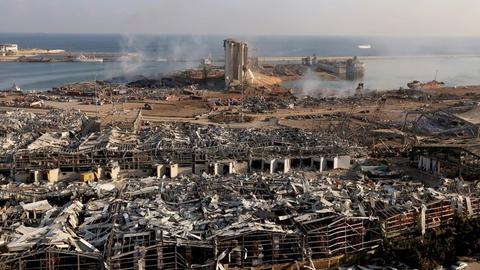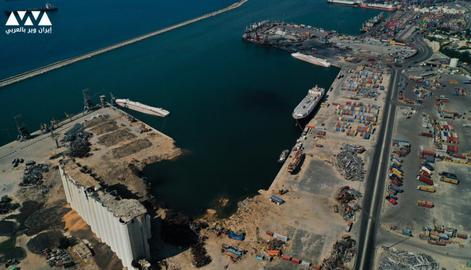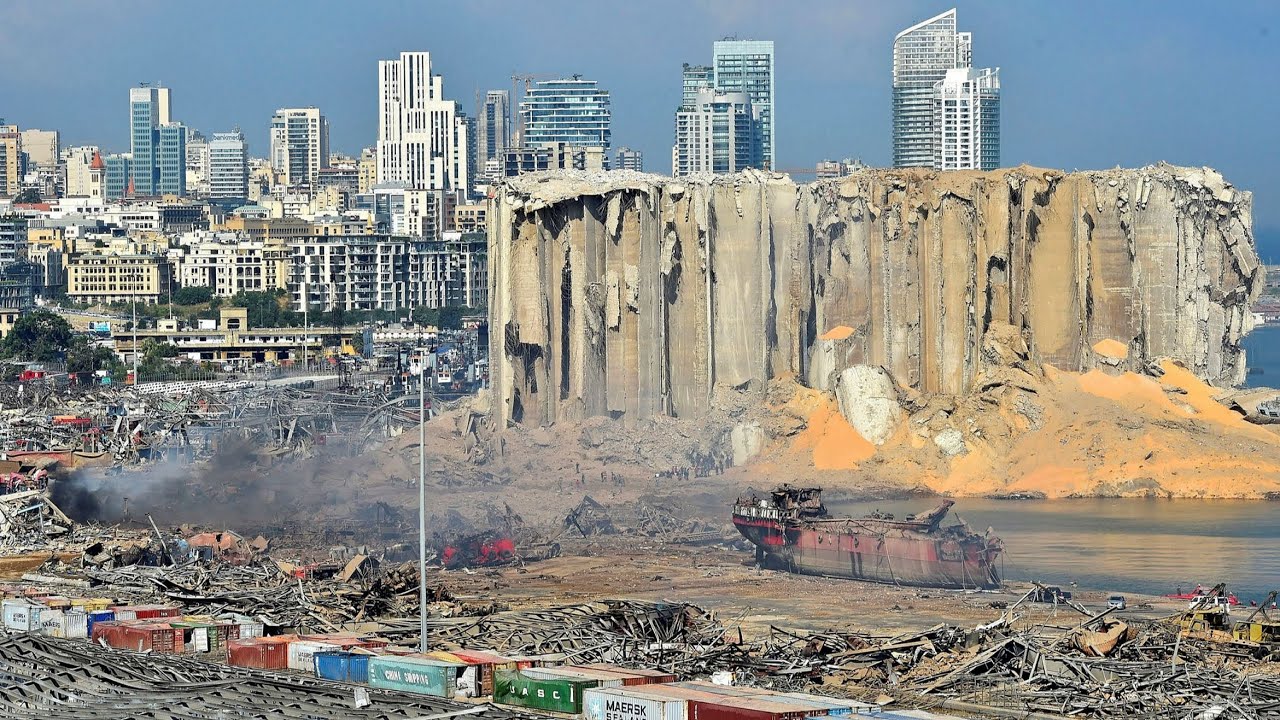On this day one year ago, the city of Beirut and its millions of inhabitants were reeling from one of the worst industrial catastrophes in recent history. On the evening of August 4, 2020, a warehouse packed with tons of ammonium nitrate at the Port of Beirut exploded, killing 221 people, injuring more than 5,000 and leaving some 300,000 people homeless, in a matter of seconds. The blast was so powerful it could be heard more than 200km away.
The Beirut Port explosion laid waste to the Lebanese capital at a time when the country was already stricken by a deepening economic crisis and the impact of Covid-19. The government resigned en masse six days later and Prime Minister Hossein Diab and three other ministers were later charged with negligence. By December 2020, close to 40 people were being prosecuted over the blast.
This, however, would be just the beginning. The massive quantity of explosive material stored at the Port of Beirut had been there since late 2013. It arrived by cargo vessel and was transferred to a unit IranWire quickly learned belonged to Lebanese Hezbollah. On the anniversary of the tragedy, hundreds of people marched through Beirut demanding an end to Iranian proxies’ influence in their country, the horrific consequences of which can now be seen all around.
Bureaucracy Weighs Heavy on Lebanon's Internal Investigation
To mark 12 months since the catastrophe in Beirut, IranWire’s Arabic team has created an in-depth, interactive series examining several discrete aspects of the aftermath. Hours after the blast, the Lebanese Interior Minister Mohammed Fahmi said authorities would expose “the truth” within days. But a year on, judicial investigations continue, and no party has been held fully accountable for the blast. The case is outwardly being described as one of “negligence” but judges have not yet even been able to establish where the initial, fatal spark came from.
As our reporter Imad Chidiac writes, parliamentary squabbles over the question of “immunity” for potentially liable individuals – including Diab, but also military figures – have caused the investigation to flounder. In that time, a prominent Lebanese critic of Hezbollah, Luqman Salim, was murdered in February 2021. Lebanese ex-MP Fares Saeed recently claimed that Moscow-based Syrian businessmen close to the al-Assad regime were behind the storing of explosives at the port, and said Salim had been killed after alleging the same. Like countless others in Lebanon, Saeed is incredulous that no international body has agreed to an independent investigation, 12 months down the line.
Striving for Accountability Under Domestic and International Law
Meanwhile Fatima al-Othman details the findings of “They Killed Us From Inside”: a meticulous, 127-page report on the Beirut Port disaster by Human Rights Watch. Researchers over through reams of government documents and official correspondence on the cargo ship Rhosus, which brought the explosive material into Beirut, some of which had not been published before, to compile a damning list of officials – including but not limited to President Michel Aoun, Hassan Diab, then-Director General of Security Tony Saliba, ex-Lebanese Army Commander Jean Kahwaji and ex-Minister of Finance Ali Hassan Khalil – who they surmise must have known about the risks posed by the ammonium nitrate, and failed to take action.
Some government officials, Human Rights Watch states, “tacitly accepted the risk of deaths occurring. Under domestic law, this could amount to the crime of homicide with probable intent, and/or unintentional homicide.” Under international human rights law, a state’s failure to act to prevent foreseeable risks to life is a violation of the right to life.
Port Director: All Talk, No Action on Reconstruction
Meanwhile, there is the question of reconstruction. The Beirut Port blast ripped through a densely-populated metropolitan area, flattening the port itself and creating up to 800,000 tonnes of construction and demolition waste. The UN estimated that the environmental clean-up alone would cost $100 million.
IranWire’s Imad Chidiac spoke exclusively to Ahmed Tamer, Director General of Land and Maritime Transport at Beirut’s second-biggest port of Tripoli, who aided with management of Beirut Port after its former director Hassam Koraytem was arrested last August. Tamer told IranWire that the port’s situation would remain “catastrophic” for as long as it does not have a permanent management team in place: a situation that mirrors that of the country overall.
Beirut Port’s private funds were frozen by the courts after the explosion. The beleaguered Ministry of Public Works is the only body that can approve reconstruction contracts. “Many companies have submitted offers [for reconstruction],” Tamer said – French and German firms among them, as well as from Arab countries – but: “all of this will be confined to the arena of speech if a new Lebanese government is not formed. The political situation and the government's stumbling is the first, crippling reason. A year has passed and to date, no reform or reconstruction has taken place, and matters have been limited to cleaning and the removal of rubble.”
IranWire’s Arabic team has also obtained exclusive drone footage showing the state of the port area 12 months on from the catastrophe. You can view this with Arabic-language commentary here.
Related coverage:
Beirut Tragedy: Why Were Explosives Stored in the City's Port?
Lebanon: Protesters Storm Five Ministries, MPs Resign
Lebanese Lawyers File Complaint Against Hezbollah and Netanyahu
US Sanctions: How Did Two Corrupt Lebanese Ministers Support Hezbollah?
Lebanese Hezbollah Supporters Raise Iranian Flag in Response to Beirut Port Accusation
Explosion Reveals Lebanese Hezbollah Using Homes as Arms Stores
visit the accountability section
In this section of Iran Wire, you can contact the officials and launch your campaign for various problems




























comments